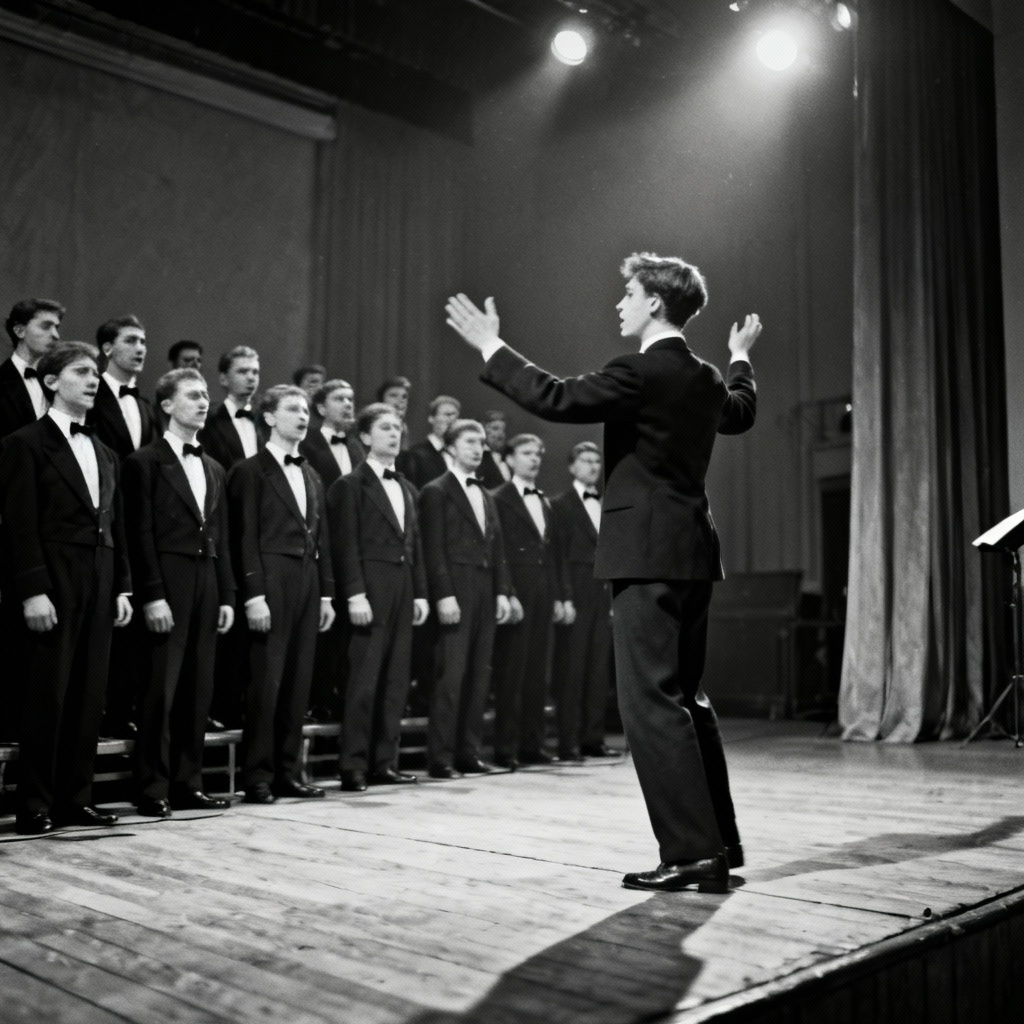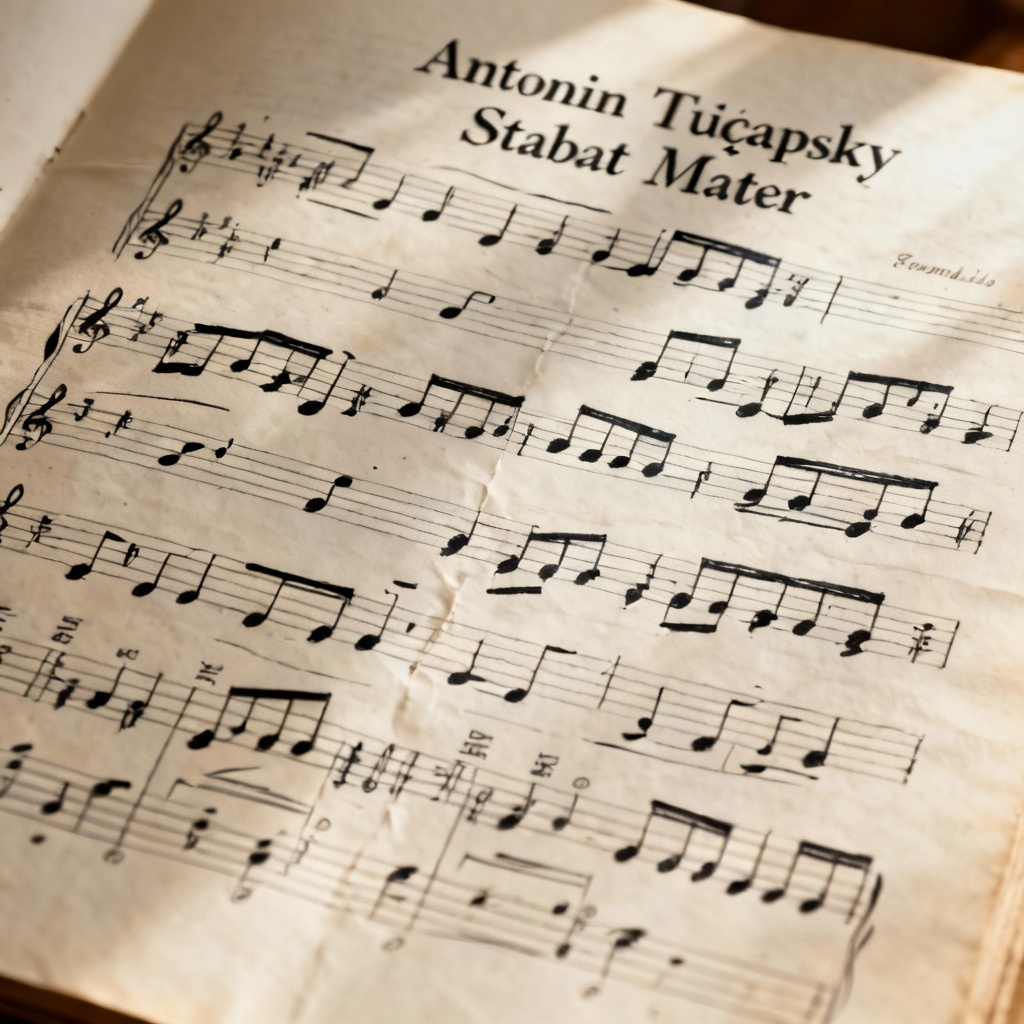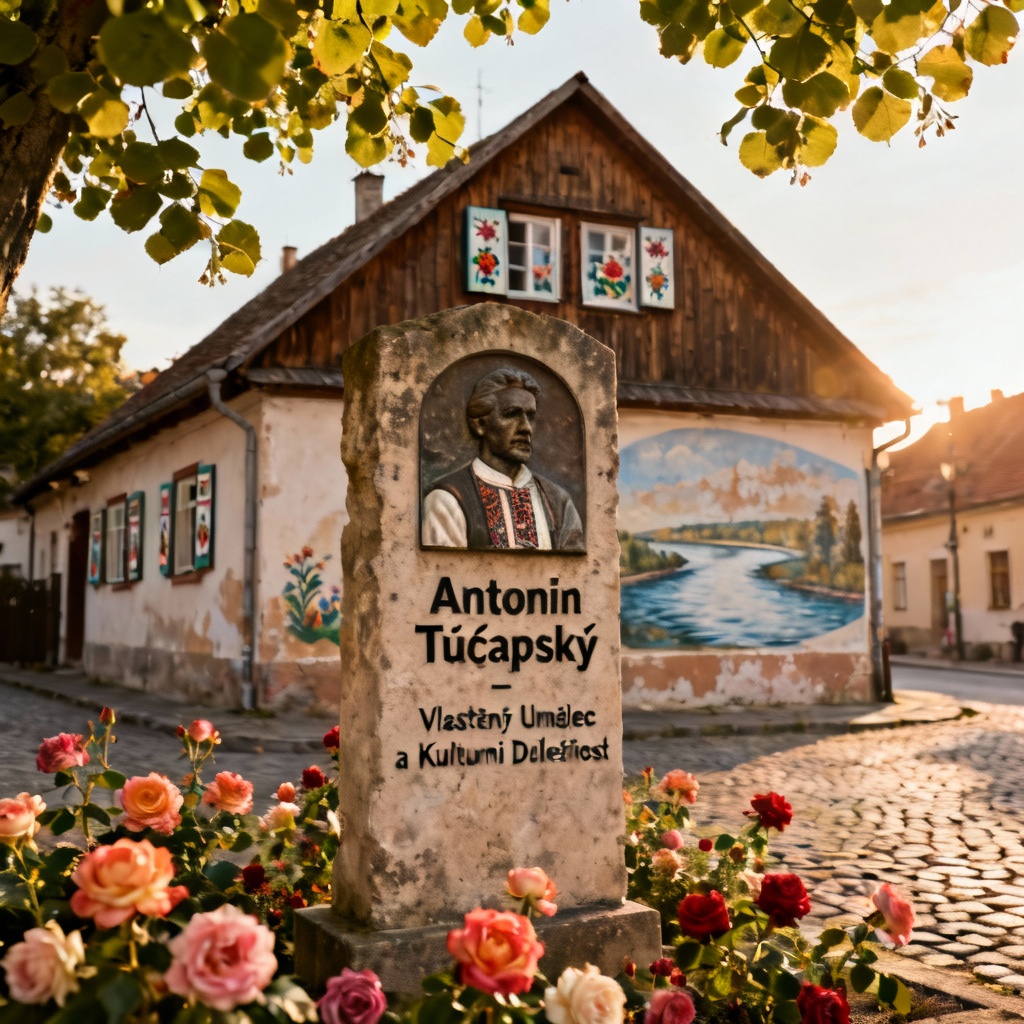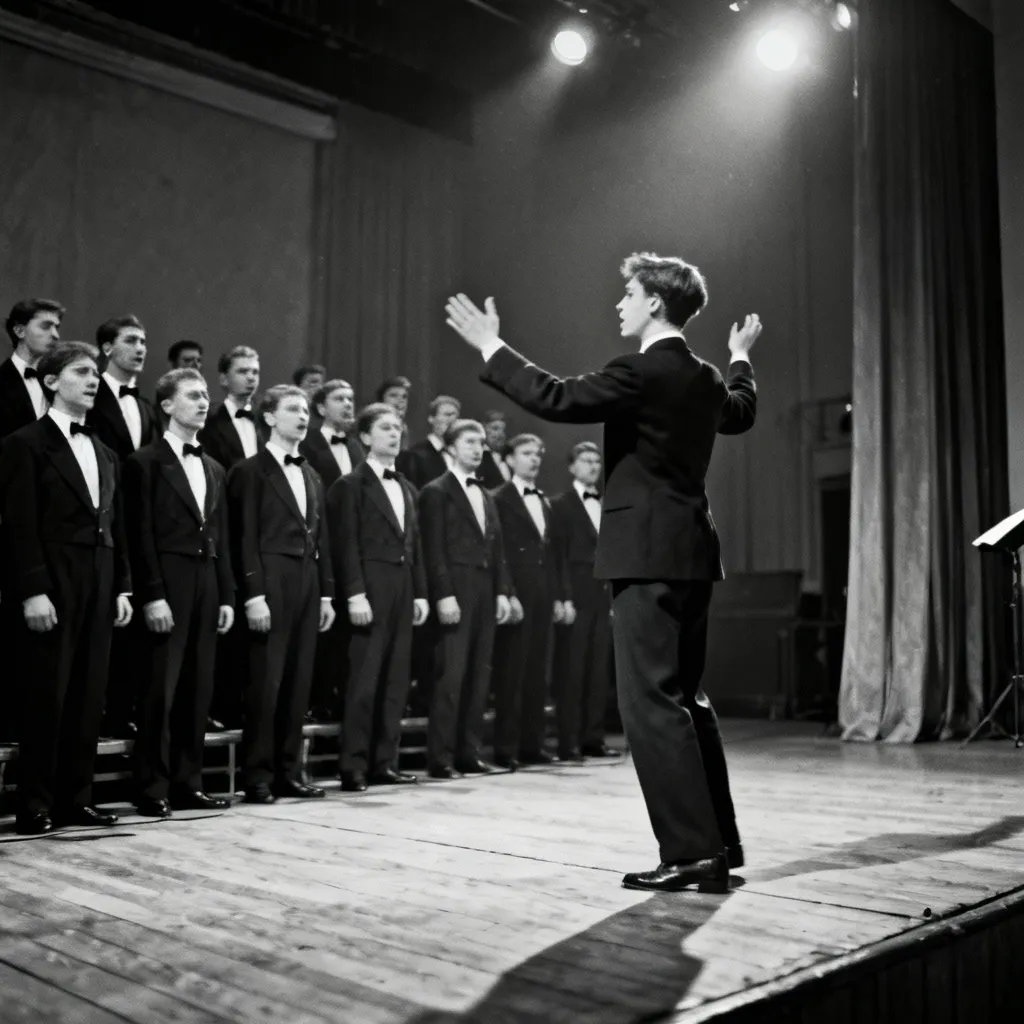“Antonín Tučapský: Life and Works of a Czech Composer” Prompt idea: Write a short biography of Antonín Tučapský, focusing on his contribution to Czech classical and choral music, his most famous works, and his influence on 20th-century European composers. Tone: informative, elegant, cultural.
The history of 20th-century European classical music is often told through a lens of post-tonal revolution, yet Antonín Tučapský stands as a profoundly important figure who maintained a vibrant connection to the expressive heart of tonality and national musical tradition. Born in Moravia, the cultural heartland of the Czech Republic, Tučapský (1928–2014) began his career firmly rooted in the country’s celebrated choral tradition. His work bridges the emotional depth of Eastern European folklore with the meticulous structure of Western classical forms, ultimately carving out a unique and influential path across two distinct European nations.
Tučapský's artistry offers a compelling case study of a composer whose personal biography became inextricably linked with the ideological currents of his time. His musical language, which is both complex and immediately accessible, resonated with audiences worldwide. Through his teaching and prolific composition in England, he preserved and projected a distinctly Czech sensibility, especially in the realm of choral music, for which he is most renowned.
Moravian Roots and Formative Years: The Czech Conductor
Antonín Tučapský was born on March 27, 1928, in Vyškov, Moravia, a region deeply imbued with a rich heritage of folk culture and music. This vibrant cultural environment served as the foundational bedrock for his artistic sensibility, fueling the folk-like melodism that would become a hallmark of his compositional style later in life. His education began in Brno, where he attended Masaryk University, graduating in Music Education and Musicology in 1951.
His dedication to the choral tradition was honed at the Janáček Academy of Music and Performing Arts, where he studied choral conducting. He also undertook private composition studies with Jan Kunc, who was a student of the towering figure of Czech music, Leoš Janáček. This direct link established a spiritual and technical connection to one of the most significant streams of Moravian musical language, which can be subtly discerned throughout Tučapský’s mature output.
The composer's professional life flourished through his work as a conductor and music teacher, moving through pedagogical posts in Kroměříž and Ostrava. His most significant early role began when he joined the world-famous Moravian Teachers’ Male Voice Choir (Pěvecké sdružení moravských učitelů) in 1951, eventually becoming their Musical Director from 1964.
Under his ten-year directorship, the choir toured extensively across Europe, delivering broadcastings and recordings that further cemented his reputation as a conductor and an expert in Moravian choral performance. His academic contribution was cemented in 1969 with a Ph.D. for his book, Janáček’s Male Choruses and Their Interpretation Tradition, demonstrating a deep and scholarly engagement with his nation’s musical heritage.

A Political Exile and New Horizons: The London Chapter
The thriving Czech chapter of Tučapský's career was brought to an abrupt and severe end by the shifting political climate in post-1968 Czechoslovakia, which was under a restrictive Communist regime. Due to ideological pressures and what was considered "frame reasons" related to his personal life, he was dismissed from his educational and cultural posts and forbidden to work in his field. This painful political reality forced a profound life change, transforming a prominent conductor into a manual labourer for two years.
This persecution positioned Tučapský among the ranks of significant "exile composers," artists whose creative lives were interrupted and redirected by totalitarian politics. The ideological rigidity in Czechoslovakia saw free-thinking composers being essentially erased from the collective historical memory, making their work abroad a vital subject for reconstruction by later musicology.
In 1975, Antonín Tučapský was permitted to emigrate to Great Britain, which became his permanent home. His move to London heralded a pivotal new era of creative freedom and professional recognition. He was promptly appointed a Professor of Composition and musical-theoretical subjects at Trinity College of Music in London, a position he held with distinction until his retirement in 1996.
The UK provided not just security, but a powerful platform. Although a gifted conductor, his focus in England shifted profoundly, allowing his compositional drive to take absolute precedence over performing, leading to his most prolific period. The atmosphere of artistic liberty allowed his over 600 compositions to flow, many receiving their first performance in his adopted country and achieving international recognition.
The Choral Legacy: Sacred Works and Tonality
The immense catalogue of Tučapský’s output—spanning orchestral, chamber, instrumental, and solo vocal works—demonstrates a remarkable facility across genres. However, his legacy is overwhelmingly defined by a clear predominance of choral works, which include everything from short a cappella motets and folk song arrangements to major large-scale cantatas and oratorios.
Compositional Style: Tonality in a Modernist Century
Tučapský established himself as an essentially tonal composer, an intentional and culturally significant choice amidst the post-serialist and avant-garde trends of 20th-century Europe. His commitment to a tonality accessible to a wide audience distinguishes him, yet his music is far from simple. He masterfully wove his Czech and Moravian heritage into his modern, tonal fabric, a quality that appeals greatly to performers and audiences globally.
His melodies frequently possess a newly conceived "folk-like" character, often employing Moravian-inflected modal scales and rhythms that infuse the music with a sense of deeply rooted authenticity. This ability to combine deep Moravian soul with an eloquent, cosmopolitan harmonic language made him an essential bridge-builder between Czech tradition and international repertoire.
Major Works for Chorus and Orchestra
Tučapský’s masterpieces are often found in his substantial sacred vocal-instrumental compositions, many of which delve into profound human and spiritual experiences:
- Stabat Mater (1989): A central pillar of his large-scale choral repertoire, this oratorio for mezzo-soprano, baritone, mixed choir, and orchestra is a setting of the traditional Latin text. The work is profoundly emotive, inspired by the personal solitude and pain of Mary's grief at the foot of the cross, as visualized by the composer in a South Tyrol church wood-carving. It exemplifies his successful marriage of traditional form, spiritual text, and deep emotional colour.
- Mary Magdalene: An important cantata that further explores biblical themes, a significant pursuit for Tučapský especially during his time in the West, where he had the freedom to explore religious topics.
- Missa Serena: A substantial Mass setting which is highly respected in the modern liturgical music repertoire, valued for its clarity and serene musical expression.
- Five Lenten Motets (Pět postních motet): These smaller, a cappella choral works for mixed choir are exquisite examples of his craftsmanship. They illustrate his deep understanding of unaccompanied vocal writing, which connects directly to the historical power of Czech and Moravian choral practice.

Beyond the Voice: Instrumental and Chamber Works
While his choral output dominates, Tučapský was not solely a composer for the voice. He wrote prolifically across other genres, applying the same musical clarity and emotional directness to solo and ensemble works. These pieces reveal a different dimension of his artistry, showcasing his skill in texture, dialogue, and instrumental colour.
Notable Instrumental Works include:
- Concertos: He composed concertos, including a Violin Concerto and a Viola Concerto, indicating his ability to write virtuosic works for solo instrument and orchestra.
- Chamber Music: His chamber repertoire encompasses genres like sonatas for various instrument combinations (piano, violin, guitar, organ, clarinet, etc.), Piano Trio, String Quartet, and Wind Quintet.
- Duo Concertante (1989): This piece for viola and guitar is an excellent example of his interest in creating engaging musical conversations between unconventional instrumental partners.

Influence and Legacy on 20th-Century European Composers
Antonín Tučapský’s influence is best understood not in terms of establishing a new, radical musical school, but as a major force of continuation and internationalisation. Alongside contemporaries like Petr Eben and Zdeněk Lukáš, he is recognised as a great figure in the modern Czech music scene, bridging the post-Janáček generation to the present.
His unique influence is multi-faceted:
- Custodian of Czech Choral Identity: His work with the Moravian Teachers' Choir and his scholarly exploration of Janáček's choruses meant that he carried a living, profound knowledge of Czech choral tradition to Western Europe. This was essential for enriching the international repertoire with authentic, well-researched Czech musical idioms.
- The Power of Accessible Tonality: In an era that often valued challenging obscurity, Tučapský provided an articulate, emotionally resonant body of work rooted in tonality. This stylistic stance proved highly successful with international performers, who found his music accessible yet rewarding, leading to performances across the globe. His music actively encouraged a continued appreciation for a historically-informed, non-dogmatic musical approach in 20th-century composition.
- A Symbol of Creative Freedom: As a successful composer in exile, his career offered an important and necessary narrative counterpoint to the cultural oppression behind the Iron Curtain. His triumph as a professor and composer in the UK symbolised the indomitable spirit of Czech cultural identity despite political barriers.
Tučapský's compositions, published primarily by Goodmusic/Roberton, remain standard repertoire items for professional and amateur choirs, securing his enduring presence in the fabric of European music long after his death in London in 2014. His career represents the resilience of cultural tradition, transformed but never compromised by political upheaval.
Conclusion
Antonín Tučapský was an elegant and informative voice in 20th-century classical music, a composer who navigated profound political challenges to leave an extraordinary body of work. Born into the deep, musical soul of Moravia, he refined the Czech choral tradition before carrying its essence into the global arena via his professorship in London. While his contributions spanned many forms, his legacy as a prolific and beloved choral composer—the master of the eloquent, tonally resonant oratorio—is undisputed. His enduring popular and scholarly respect confirms his stature not only as a pivotal figure in modern Czech composition but also as an indispensable contributor to the global 20th-century repertoire. His life story is a powerful testament to the triumph of creative will over ideological constraint.
